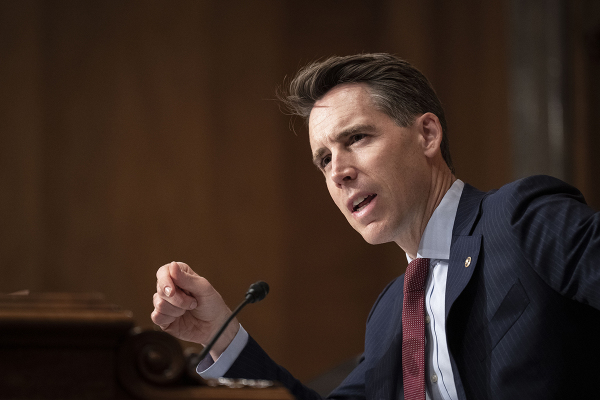Unpredictable N. Korea to Renew Talks With U.S.?
Over two years after quitting six nation talks just before violating a nuclear treaty and launching a long-range missile into the Pacific Ocean, North Korea wants to resume talks over the possibility of ending their nuclear program in exchange for aid “without preconditions.”
The communist state’s decision comes after a meeting between its first vice foreign minister, Kim Kye Gwan, and President Obama's representative for North Korea, Stephen Bosworth in New York last week, according to the AP.
The meeting comes soon after representatives from North Korea met with their South Korean counterparts during the Asia Security Forum in Indonesia. The development can be seen as a hopeful sign that the communist regime is again making efforts to obtain better relationships with the international community.
Those talks between the two Koreas are what led to the meeting in New York with Bosworth.
"Both sides recognized that the improvement of the bilateral relations and the peaceful negotiated settlement of the denuclearization of the Korean peninsula conform with the interests of the two sides and agreed to further dialogue," the North's foreign ministry spokesman said.
Despite the positive efforts, commentators still feel that there is great reason to be skeptical of the sincerity of North Korea’s recent actions. Many have seen efforts made before, only for talks to be quickly scrapped and tempers being flared.
Since 2005, there have been a series of interruptions in talks that have resulted in setbacks each time. In November of that year, Washington accused Macao-based Banco Delta Asia of laundering $25 million of North Korean funds, causing the Macanese government to freeze those accounts, the Council on Foreign Relations said. After the money freeze, North Korea retaliated by conducting missile tests in July 2006 and a nuclear test in Oct. 2006.
In 2007, North Korea returned to talks at the urging of the Chinese government. After several improvements, including the shutting down of its main nuclear plant, the U.S. awarded economic aid to North Korea and, in 2008, removed it from the State Sponsors of Terrorism list.
Critics of the Bush administration’s policies towards North Korea said that not nearly enough had been done to reward Kim Jong Il’s regime. Obama’s more direct approach with North Korea also failed to improve matters as North Korea reverted to hostility once more by violating a nuclear treaty ban and launching a long-range missile in 2009, resulting in the end of the six nation talks that were active at the time.
Although the U.S. and North Korea might be ready to resume talks, nobody is certain of what to expect. Indeed, South Korea, the most concerned participant of the six nation talks, is reluctant to resume the talks in the first place.
South Korea's chief envoy to the six-party process, Wi Sung-Lac, said, “We cannot go to six-party talks when (the North's) nuclear programs are up and running."
In 2007, the two Koreas signed a peace treaty that ended the armistice for the 1950-53 war and declared “permanent peace” on the Korean peninsula. Last year, the North Korean army opened fire on a South Korean island, killing four people.





















